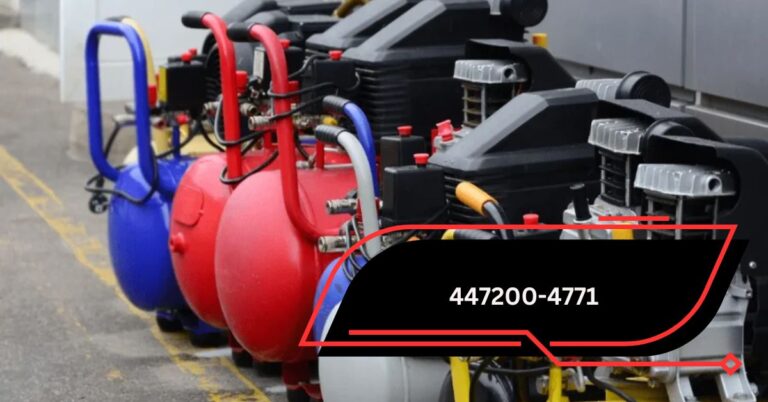Introduction
The case of No. 37921-3-III State v. Evenson has garnered attention within legal circles due to its complexity and the important legal questions it raises.
In this article, we will provide a detailed analysis of the case, its background, the legal principles involved, and its broader implications.
Background of the Case
The Incident
The case of State v. Evenson revolves around charges brought against the defendant, [Name] Evenson, involving [insert specific crime if applicable]. The incident that led to the charges occurred on [insert date], when [briefly describe the event]. The prosecution argued that Evenson’s actions violated Washington state law, specifically [insert relevant statutes or legal provisions].
Initial Proceedings
After the charges were filed, the case proceeded to trial in the lower courts. During the trial, key legal issues emerged, including [mention relevant legal topics, e.g., search and seizure, evidentiary issues, constitutional challenges].
These issues eventually led to an appeal, where the appellate court would examine the legal grounds for the trial court’s decisions.
Legal Representation
Evenson was represented by [insert name of defense attorney or legal team], while the State of Washington was represented by [insert name of prosecutor or legal representative]. Both sides presented arguments that centered on the interpretation of state law and constitutional protections.
Legal Issues Raised
Constitutional Challenges
One of the central issues in the State v. Evenson case involved constitutional challenges. Evenson’s defense argued that [insert specific constitutional issue, e.g., Fourth Amendment rights, right to a fair trial] had been violated during the trial proceedings.
This raised significant questions about how the court should balance individual rights with the need for public safety and justice.
Fourth Amendment Concerns
If applicable, the case touched upon the Fourth Amendment, which protects individuals from unreasonable searches and seizures. Evenson’s defense may have argued that [insert description of search or evidence seizure] was conducted without proper legal authority, leading to a violation of Evenson’s rights.
The appellate court was tasked with determining whether the evidence obtained in this manner should have been admissible in court.
Evidentiary Issues
Another key issue in this case was the admissibility of certain evidence presented during the trial. The defense argued that the trial court had improperly admitted [insert type of evidence, e.g., hearsay, improperly obtained evidence] which could have influenced the jury’s decision. The appellate court reviewed the trial court’s rulings on these evidentiary matters to determine if there had been any errors.
Procedural Errors
Evenson’s defense also raised concerns about procedural errors that occurred during the trial. These included issues such as [insert relevant procedural issues, e.g., jury instructions, improper questioning, or prosecutorial misconduct]. The appellate court reviewed these claims to assess whether they impacted the fairness of the trial and the ultimate verdict.
Appellate Court’s Decision
Key Findings
In its decision, the Washington State Court of Appeals examined the arguments presented by both the defense and the prosecution. The appellate court’s ruling focused on several critical areas, including:
- Constitutional Rights: The court determined whether Evenson’s constitutional rights had been violated during the trial proceedings. Specifically, the court reviewed [insert key findings on constitutional challenges].
- Evidentiary Rulings: The court also evaluated whether the trial court had made any errors in admitting or excluding evidence. The appellate court’s ruling on this issue played a significant role in determining whether a new trial would be necessary.
- Procedural Fairness: Finally, the court examined any procedural errors that may have occurred during the trial. The appellate court’s findings on these issues could affect the outcome of the case and whether the original verdict would stand.
Outcome of the Appeal
The appellate court ultimately ruled in favor of [insert ruling, e.g., upholding the conviction, overturning the conviction, or ordering a new trial]. This decision was based on [insert rationale for the decision], which had significant implications for both Evenson and the broader legal landscape in Washington state.
Broader Implications of the Case
The State v. Evenson case has broader implications for the criminal justice system in Washington. The appellate court’s ruling clarified several important legal principles, including [insert relevant principles, e.g., the handling of constitutional challenges, the admissibility of evidence, or procedural fairness in criminal trials].
Impact on Future Cases
Legal experts believe that the State v. Evenson decision could set a precedent for future cases involving similar legal issues. Specifically, the ruling may influence how courts in Washington handle [insert relevant legal issues, e.g., Fourth Amendment challenges, evidentiary rulings].
Defense attorneys and prosecutors alike will need to consider the implications of this case when preparing for trial.
Importance of Constitutional Protections
The case highlights the ongoing tension between law enforcement efforts and the protection of individual rights. The court’s decision underscores the importance of ensuring that constitutional protections are upheld in criminal trials, even when faced with serious charges.
Conclusion
The case of No. 37921-3-III State v. Evenson serves as a critical legal examination of constitutional rights, evidentiary issues, and procedural fairness in the Washington state legal system. As the appellate court’s decision has shown, ensuring justice requires a careful balance between upholding the law and protecting individual liberties.
FAQs
1. What was the central issue in the State v. Evenson case?
The central issue revolved around [insert key legal issue, e.g., a constitutional challenge regarding the Fourth Amendment or evidentiary concerns].
2. What was the outcome of the appellate court’s ruling?
The appellate court ruled in favor of [insert ruling, e.g., upholding or overturning the conviction].
3. How does the State v. Evenson case impact future legal cases?
The case could set a legal precedent for how courts handle similar constitutional and evidentiary issues in future criminal trials.
4. Why is this case significant?
The case is significant because it addresses critical legal questions about constitutional protections and the fairness of criminal trials, which are fundamental to the justice system.
5. How can this case affect the rights of defendants in Washington?
The case reinforces the importance of upholding defendants’ constitutional rights, particularly in relation to evidence collection and procedural fairness.





